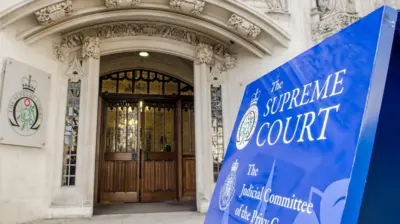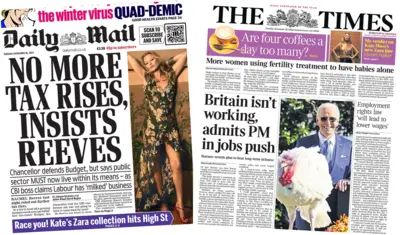We've updated our Privacy and Cookies Policy
We've made some important changes to our Privacy and Cookies Policy and we want you to know what this means for you and your data.
Huhne insists carbon reduction strategy is 'on track'
Energy Secretary Chris Huhne has insisted that plans to cut Britain's carbon emissions are on track.
In his Autumn Statement, Chancellor George Osborne said he was worried about the impact of "endless social and environmental goals" on businesses.
But Mr Huhne said his colleague was "signed-up" to the process and had himself backed the introduction of a floor to regulate the price of carbon.
Labour said the government's green credentials had been exposed.
Asked about the recent announcement of a reduction in subsidies for solar panels, Mr Huhne said this was a "sensible course correction" because the cost of panels had fallen.
'Sustainable growth'
Feed-in Tariff subsidies, which enable people who install solar panels on their roofs to get rebates for the electricity they put back into the grid, will be halved for people who have their panels installed after 12 December.
Labour say the move will "strangle" the solar panel industry while business groups say the step is short-sighted and will threaten jobs.
One of the largest installers of solar panels, Carillion, has told 4,500 staff they may be made redundant because of the cut and the Department of Energy and Climate Change is also facing two possible legal challenges over the plans from Friends of the Earth and lawyers acting for installers.
But Mr Huhne defended the move, saying it was done in response to market developments.
"A lot of the businesses that have been involved in it have been growing at an incredible pace, precisely because there's been such a big fall in the cost of solar panels," he told ┤¾¤¾┤½├¢ Radio 4's Today programme.
"So that the original subsidies which had been designed, without any view of the real world, by the last Labour government, have not been brought down in line with the fall in the cost of the solar panels.
"All we've done is move them back in line so that the industry can grow sustainably, and we don't use up all of the budget that's allocated for solar panels by the end of next year."
Carbon plan
Mr Huhne was speaking ahead of the launch of the government's "carbon plan" - a strategy designed to ensure the UK meets its target of halving carbon emissions, from 1990 levels, by 2025.
The energy secretary said the government would not need to spend any more money in this Parliament to achieve this but, from 2015 onwards, huge investment could be required in new technologies to reduce emissions from transport, buildings and energy production.
The estimated cost of this transition could be as high as £20bn, the plan suggests, although it also could ultimately result in a net benefit to the economy of £1bn.
Mr Huhne has vowed to change the way the country produces energy, replacing old coal plants with gas-fired power stations and renewable sources as well as building a new generation of nuclear plants.
The carbon plan suggests that household energy bills could be 7% lower in 2020 than now if government policies on home insulation and energy efficiency are fully implemented.
But environmental groups have attacked proposals, included in Mr Osborne's Autumn Statement, to help energy intensive industries with rising costs, saying it will reward some of the UK's largest polluters.
Mr Osborne said the £250m package of support - including increased relief on the climate change levy - was necessary to ensure UK firms were not "priced out of the world economy" in the tough climate and jobs lost.
Labour said the failure of the government's economic policy was undermining its agenda and its flagship Green Investment Bank would not have full borrowing powers to fund low-carbon projects until 2016.
"The Conservatives said 'vote blue, get green' but the reality is we are not getting very much at all," Angela Smith, shadow deputy leader of the House of Commons, said.
"It will take more than a few huskies to restore the prime minister's green credentials."
Top Stories
More to explore
Most read
Content is not available








